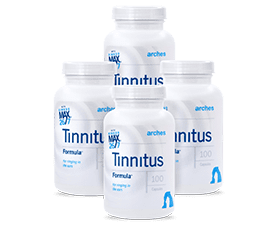By Barry Keate
Barry Keate, has lived with tinnitus over 40 years and has published 150+ research articles on numerous aspects of tinnitus. He is an expert on the condition and a well-known advocate for those with tinnitus.
Submitted by Barry Keate- 1/23/14
A very important systematic review of Ginkgo biloba for the treatment of tinnitus was recently published in a peer-reviewed journal. In the July 28, 2011 issue of Neuropsychiatric Disease and Treatment, ENT physician and researcher Alexander von Boetticher of Lueneburg, Germany set out to assess the methodological quality of available randomized controlled trials of Ginkgo biloba extract for tinnitus and provide a synopsis of the evidence of efficacy of the trails.
The clinical review can be viewed in it’s entirety at https://www.tinnitusformula.com/library/ginkgo-biloba-extract-in-the-treatment-of-tinnitus-a-systematic-review. The citations mentioned throughout this post refer to this clinical review.
Von Boetticher’s goal was to evaluate randomized, placebo-controlled, double blind trials that met criteria including:
1–Use of an identifiable, standardized Ginkgo biloba extract, the composition of which is described adequately,
2–Dosing and duration of treatment appropriate for type of tinnitus,
3–No major methodological shortcomings or bias.
After searching the PubMed database he included three studies of patients with tinnitus as a primary complaint and five studies of patients suffering from dementia or age-associated cognitive decline with tinnitus as a concomitant complaint. All eight studies showed efficacy of Ginkgo biloba over placebo.
It is interesting to note some of the studies von Boetticher rejected for the review.
1-In a trial reported by Holgers et al, 80 patients with chronic tinnitus were treated with 29.2 mg per day of a ginkgo product for two weeks. The dosage is absurdly low compared to most studies dosage of 120-240 mg per day. A treatment period of two weeks is also far below standard for chronic tinnitus.
This is referred to in citation #30 but was not included in the review for the methodological reasons stated above. It was published in the journal Audiology in 1994. This trial was also mentioned in N. Holstein’s review of 19 clinical trials on ginkgo for tinnitus and was rejected from that review for the same reasons.
2-In a trial involving 66 patients with tinnitus reported by Rejali et al, (Citation #32), patients were treated with 120 mg ginkgo per day for 12 weeks. The ginkgo used is not described nor is any information provided about composition or standardization. After 12 weeks treatment 51% of the patients treated with placebo and 21% of those treated with ginkgo were unable to attend the final visit with the researchers. Thus, statistical evaluation was impossible to perform properly.
3-There is a very well known study conducted by Drew and Davies (Citation #31) that is commonly referred to as the “Birmingham Study” after Birmingham, England where it was conducted. Von Boetticher states, “This study did not meet minimal standards of Good Clinical Practice. No personal contact between physicians and patients was required; as a consequence, the actual existence and identity of the patients could not be verified, nor was any medical or audiological examination performed.” And, “Although patients were paired and then allocated treatment codes, 155 patients who received study medication were unpaired at the end of the study and only 363 pairs (726 patients out of 1243 enrolled) were accounted for in the primary analysis.” Again, statistical analysis is impossible to perform properly if only 58% of enrolled patients are accounted for.
The eight clinical studies von Boetticher included can be seen by clicking on Table 2 in the clinical review. The results of these trials, including those conducted on patients with dementia or age-related cognitive decline (tinnitus outcomes are included) can be seen by clicking on Table 3. The relevant citations for the trials that were included are #23 through #29.
Abstracts of two of these clinical trials on those with tinnitus as the primary complaint are available on PubMed. The Morgenstern study published in The International Journal of Clinical Pharmacology and Therapeutics (Citation #23) can be seen at www.ncbi.nlm.nih.gov/pubmed/12051570. The B. Meyer study published in La Presse Medicale in France (Citation #25) can be seen at www.ncbi.nlm.nih.gov/pubmed/2947100.
Von Boetticher concludes, “There are studies of various ginkgo preparations which have shown no effect but these were of poor methodological quality. However, the currently available literature shows that there is evidence for the successful treatment of tinnitus with the Ginkgo biloba extract EGb 761. Of note, all trials using this extract consistently demonstrate its superiority over placebo.”
The complete clinical review can also be seen on the National Institutes of Health website at http://www.ncbi.nlm.nih.gov/pmc/articles/PMC3157487/.
Get Free Shipping!
Order now and get free shipping on either the Tinnitus Starter Kit or Combo Pack. Try the doctor recommended products with clinically proven ingredients for tinnitus. No coupon code required.

